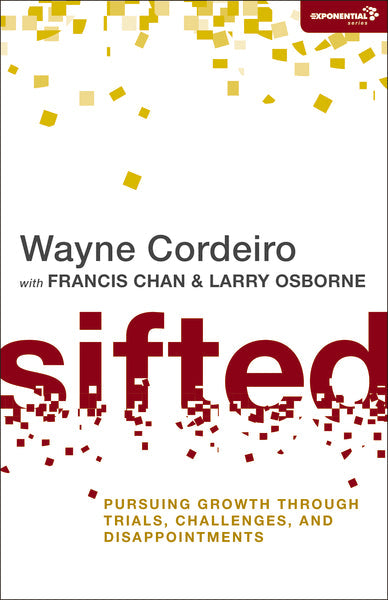Should I continue or quit?
Have you ever faced this question? I have. Quitting is not the worst thing a leader can do. There are times when a fisherman’s line gets so tangled he needs to cut his losses for the sake of survival. At other times a leader may decide that God has called him to plant for a comparatively short season, and that season is now complete. Quitting is sometimes the wisest option a leader can choose. Yet the majority of time, quitting is not the option a leader feels in his heart he wants to choose.
I believe that how you leave one ministry will determine to a large extent how you will begin the next. But how do you know what your next step is? What do you do if you’re caught between the options of staying or quitting, and neither one looks good?
There is only one question that really matters. It’s not should I continue or should I quit, it’s something else altogether: Is Jesus enough for you? If you can say yes to that question, you are free to receive what Jesus has for you. Scripture reminds us that “the name of the Lord is a fortified tower; the righteous run to it and are safe” (Prov. 18:10 NIV). It’s okay to be a weak saint when you’re in the arms of a strong citadel.
When you are in this season of questioning and searching, asking for direction from the Lord and returning to him, there are three principles that can help you grow and experience greater refinement.
Principle 1: Let the Bible Study You
When you need to hear God’s voice, circle back to his Word. No, don’t approach it as a magical book that will decode your next directive. Instead, look to your time in the Word as a time for re-instilling the most basic discipline of all: a daily devotional time when you sit before God’s Word, not in order to study the Bible but to let the Bible study you. (See Hebrews 4:12.)
There is much God will say to you if you are willing to listen, and there is only one book in the universe that God has promised, unfailingly, to speak through.
Principle 2: Come to God Stupid
Yes, you read that one right. I could also say it this way: come to him without having the answers already in hand. Simply say to him, “Lord, I don’t know how to be a pastor. I don’t know how to shepherd a flock. I don’t know how to be a speaker. I don’t know how to be a good husband and father in addition to doing everything else I need to do.”
I have often come to God as if he were another component I need to add to my stereo system: another amplifier, a sound conditioner, an equalizer, or bigger speakers. I need God to enhance what I am doing and boost my sound quality so my songs sound better. But God doesn’t want to boost my songs. He wants to change the music. And unless I come to God stupid, I end up wandering aimlessly down my own path, choosing a secondary route just because I’m too impatient to wait for him in the desert.
Principle 3: Write It Down!
I cannot overstate this third principle. When you come to listen to God, to meet him in the Word, make sure you come armed with a stack of lined yellow pads or a ream of notebook paper. The best way to solve problems and rethink your next season is to get that inner confusion out of you and onto paper. It’s easy to forget what you experience or hear in these moments with the Lord. Writing down your thoughts, impressions, and gleanings from Scripture will be invaluable to you later as you try to summarize and interpret what the Holy Spirit is saying, distilling the most salient points into a clear call to ministry.
In my ministry intersections, when I face a choice to stay or go, continue or quit, these three principles have held true and helped me to pilot the crosscurrents of ministry storms. They have helped me to navigate through treacherous reefs and brought me to safe harbor. These aren’t theories I am suggesting. They don’t come from a course I took. These have been learned through navigating stormy seas, through fields of combat and tours of duty.
— Wayne Cordeiro, Sifted: Pursuing Growth through Trials, Challenges, and Disappointments
How to Use This Book
“Sifted will equip, empower, and encourage you to experience all of God’s strength in your greatest struggles,” writes author and pastor Craig Groeschel.
Brandon Hatmaker agrees: “Sifted offers as much practical application as it offers hope. It’s a book every pastor, church planter, and churchgoer should read.”

